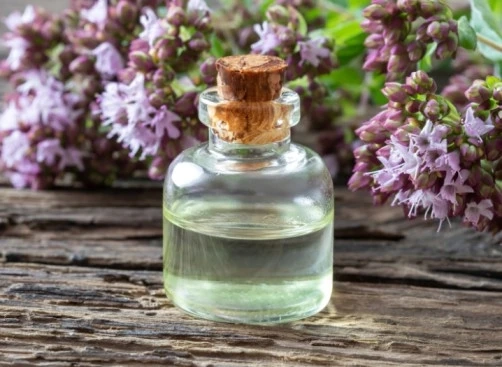Scientific studies have found oregano oil to have anti-inflammatory, anti-microbial, anti-fungal, and anti-parasitic effects. Oregano oil has a lot of anecdotal evidence to support its healing properties, even though reliable human trials examining the effectiveness of oregano oil in actually treating health conditions are yet to surface. Depending on age-old practise, there are results treating fungus, killing parasites and bacteria, or alleviating sinus infections or colds) are still lacking. In this article, we find out how to get health benefits from wild oregano oil of Australia.
Taking Oregano oil orally
Not everyone should take supplements containing oregano oil. Consult a medical expert to ensure there are no contraindications (such as pregnancy or anaemia) before starting an oregano oil regimen to treat internal symptoms. The recommended dosage for using oregano oil as a natural remedy for whatever ailment you are seeking to treat should also be provided by a medical expert.
The highest amount required (for short-term treatment) to relieve digestive symptoms and reduce inflammation should be 600 mg of emulsified oil in pill form every day for the length of your treatment. For less severe symptoms or conditions, such as yeast imbalances, general inflammation, sinus issues, and upset stomachs, smaller doses of 100 to 150 mg per day taken as capsules should be adequate.
To increase efficacy and lessen symptoms, oregano oil must be taken regularly. Do not miss doses to maximize your ability to gain from oregano oil's therapeutic effects. The day can be divided into multiple doses.
Take supplements in the form of capsules or combine undiluted drops with a small glass of water, juice, or milk because they can be extremely potent and even hazardous when used undiluted. According to reports, oregano oil (3-6 drops) combined with juice can treat sinusitis, a cold, and sore throats.
Look for a supplement that contains at least 70% carvacrol when making your purchase.
You can also gargle with lukewarm water and 2-3 drops of oregano oil to reduce inflammation.
Using as Topical Ointment
Anecdotal evidence suggests that oregano oil can heal a variety of conditions, including athlete's foot, oily skin, dandruff, rosacea, warts, and bug bites. Make sure to follow the instructions carefully before applying. If you have oregano oil that is full potency, combine a drop of it with one teaspoon of moderate, food-grade oil, like coconut oil or olive oil. Increase the application (of diluted oregano oil) to two or three times daily if your infection or condition persists and only moderate improvements are being seen. Discontinue using the oil and seek medical advice if symptoms don't improve after two weeks or get worse.
Taking it like medicine
Since oregano comes from the same plant family as mint, thyme, basil, and sage, anyone who are allergic to any of these herbs may also be allergic to oregano.
If you are sensitive to any of these plants, use oregano oil with caution. Start with a single dose of it at a very low quantity to see how your body responds.
Only short-term therapies for specific illnesses should use oregano oil since it may affect blood coagulation and interfere with iron absorption.
Even for people with long-term gastrointestinal issues or chronic bowel inflammation, oregano oil is not advised as a daily supplement unless it has been specifically prescribed by a medical expert.
Consult a medical expert if using oregano oil causes nausea, vomiting, skin rashes, swelling, irritation, or trouble breathing. Even natural oils have valuable medical capabilities, and when used improperly or by people who are intolerant to the plant's components, they can result in major health problems.



